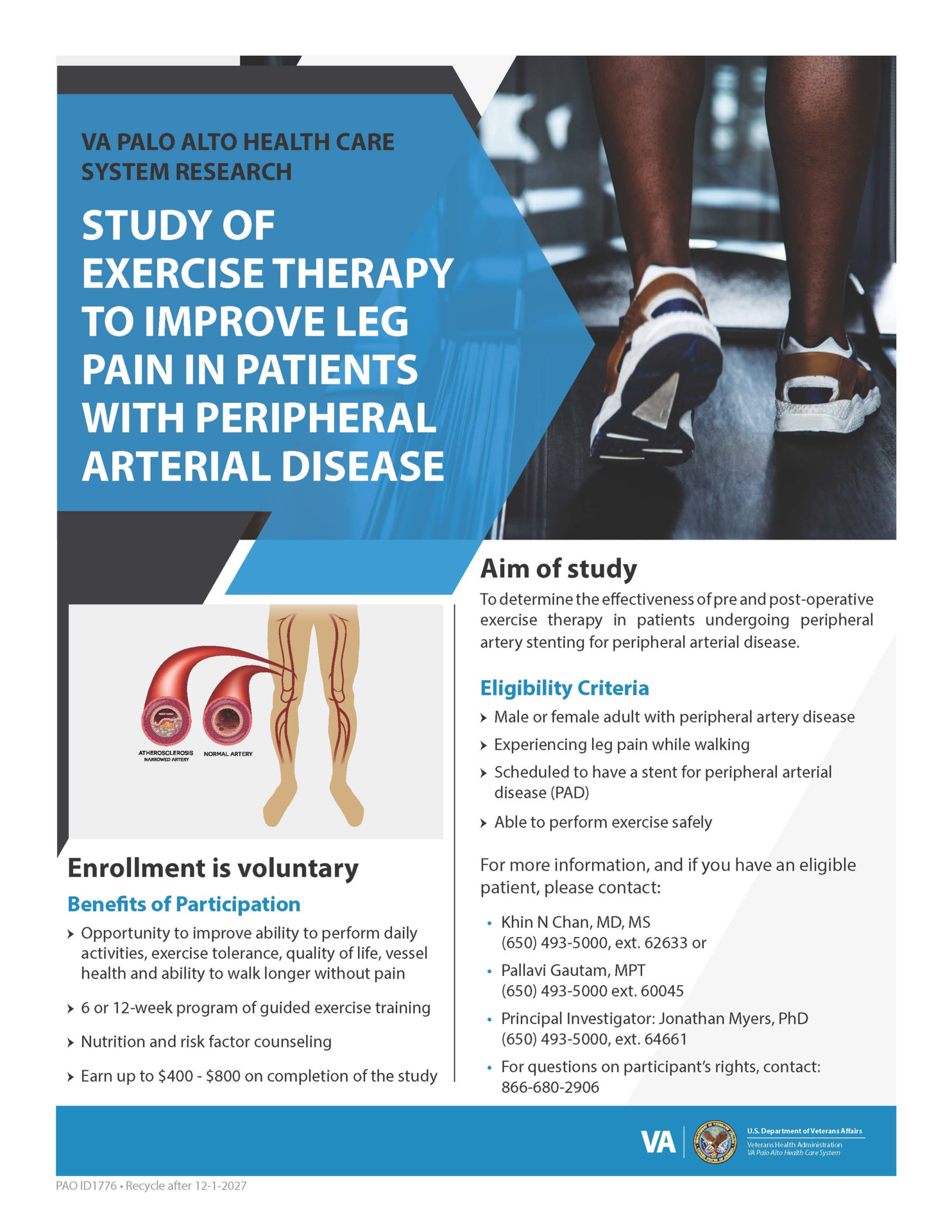Prehabilitation and Rehabilitation in PAD: A Randomized Exercise Intervention Trial (PREPARE-IT)
Dr. Jonathan Myers, Director of Cardiopulmonary Research at the Veterans Affairs Palo Alto Health Care System (VAPAHCS) and Clinical Professor at Stanford University (affiliated), and his research team are currently conducting a randomized exercise intervention trial to assess the effectiveness of prehabilitation and rehabilitation in patients undergoing peripheral artery stenting (endovascular repair) for peripheral arterial disease (PAD).

Peripheral arterial disease (PAD) affects an estimated 12-15 million adults in the US and an estimated 20% of those >70 years old. Individuals with PAD frequently have difficulty ambulating and experience limited mobility, decreased leg strength, reduced quality of life, serious morbidity, and often premature mortality. Percutaneous stenting for PAD is now one of the most common surgical procedures; an estimated 689,200 such procedures are currently performed in the US annually, with the number expected to increase at an annual rate of 7.2%. The concept of “prehabilitation” describes the process of optimizing patients’ functional capabilities before undergoing surgical or other interventions and is widely recommended in surgical guidelines worldwide. Exercise therapy combined with comprehensive secondary prevention has the potential to benefit patients with PAD by preserving or improving functional capacity and reducing cardiovascular events.
The study is enrolling individuals diagnosed with PAD from the VAPAHCS and Stanford University. Participants will be randomly assigned to one of three groups to assess the comparative effectiveness of a 6-week pre-operative program (prehabilitation) plus a 6-week post-operative program of exercise therapy (prehabilitation + rehabilitation) versus: 1) a 6-week preoperative program (prehabilitation only); and 2) a 6-week post-operative program (rehabilitation only) in patients undergoing peripheral artery stenting for PAD.
This study is funded by the Patient-Centered Outcomes Research Institute (PCORI).
The research team seeks to identify potential participants for the study. Participants will be provided individualized supervised exercise therapy and lifestyle intervention that have the potential to benefit patients with PAD by improving functional capacity, quality of life and vascular health.



